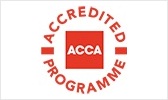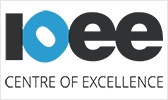-
MSc Accounting & Finance (JAN) (FT) - Year 1
|
The fee shown is for entry 2024/25. If no fee shown or its blank. The fee for 2025/26 will be published shortly. Please visit again soon for the updated fee.
|
| UK fee: £11000 |
International fee: £16900 |
| AOS/LSBU code: 5973 |
Session code: 1FS00 |
MSc Accounting & Finance (SEPT) (FT) - Year 1
|
The fee shown is for entry 2025/26
|
| UK fee: £11500 |
International fee: £17600 |
| AOS/LSBU code: 5972 |
Session code: 1FS00 |
MSc Accounting & Finance (with Internship) (JAN) (FT) - Year 1
|
The fee shown is for entry 2024/25. If no fee shown or its blank. The fee for 2025/26 will be published shortly. Please visit again soon for the updated fee.
|
| UK fee: £12190 |
International fee: £18090 |
| AOS/LSBU code: 5975 |
Session code: 1FS00 |
MSc Accounting & Finance (with Internship) (SEPT) (FT) - Year 1
|
The fee shown is for entry 2025/26
|
| UK fee: £12740 |
International fee: £18840 |
| AOS/LSBU code: 5974 |
Session code: 1FS00 |
For more information, including how and when to pay, see our fees and funding section for postgraduate students.
See our Tuition Fees Regulations (PDF File 391 KB) and Refund Policy (PDF File 775 KB).
Possible fee changes
The University reserves the right to increase its fees in line with changes to legislation, regulation and any government guidance or decisions.
The fees for international students are reviewed annually and the University reserves the right to increase the tuition fees in line with the RPIX measure of inflation up to 4 per cent.
Postgraduate loan (PGL) for Masters study
If you are starting a Masters course, studying either full- or part-time, you may be entitled to apply for a postgraduate study loan. Find out more at our postgraduate fees and funding section.
Scholarships
We offer several types of fee reduction through our scholarships and bursaries. Find the full list and other useful information on funding your studies on the scholarships and fee discounts page.
Fee status
Please check your fee status and whether you are considered a Home, EU or International student for fee-paying purposes and for our regulatory returns, by reading the UKCISA regulations.
International students
The course is not currently open to international students.
International (non Home) applicants should follow our international how to apply guide.
Home
| Mode |
Duration |
Start date |
Application code |
Application method |
| Mode Full-time |
Duration 12 months |
Start date September |
Application code 5972 |
Application method
Direct to LSBU
|
| Mode Full-time |
Duration 15 months |
Start date January |
Application code 5973 |
Application method
Direct to LSBU
|
| Mode Full-time (with Internship) |
Duration 24 months |
Start date September |
Application code 5974 |
Application method
Direct to LSBU
|
| Mode Full-time (with Internship) |
Duration 27 months |
Start date January |
Application code 5975 |
Application method
Direct to LSBU
|
Postgraduate students and research students should apply through our dedicated application system. Full details of how to do this are supplied on our How to apply section for postgraduate students and our How to apply section for research students.
See our admissions policy (PDF File 1,043 KB) and complaints policy (PDF File 516 KB).
Accommodation
Students should apply for accommodation at London South Bank University (LSBU) as soon as possible, once we have made an offer of a place on one of our academic courses. Read more about applying for accommodation at LSBU.
Finance
It's a good idea to think about how you'll pay university tuition and maintenance costs while you're still applying for a place to study. Remember – you don't need to wait for a confirmed place on a course to start applying for student finance. Read how to pay your fees as a postgraduate student.
Prepare to start
We help our students prepare for university even before the semester starts. To find out when you should apply for your LSBU accommodation or student finance read How to apply tab for this course.
Enrolment and Induction
Enrolment takes place before you start your course. On completing the process, new students formally join the University. Enrolment consists of two stages: online, and your face-to-face enrolment meeting. The online process is an online data gathering exercise that you will complete yourself, then you will be invited to your face-to-face enrolment meeting.
In September, applicants who have accepted an unconditional offer to study at LSBU will be sent details of induction, which is when they are welcomed to the University and their School. Induction helps you get the best out of your university experience, and makes sure you have all the tools to succeed in your studies.
Read more about Enrolment and Induction.
Suggested reading
- Alexander,Britton and Jorissen. (2011). International Financial Reporting & Analysis.5th edition. South Western - Cengage Learning.
Hillier, D, Ross S. A., Westerfield R. W., Jaffe J., Jordan, B. (2011). Corporate Finance, European Edition,McGraw-Hill.
Cottrell S. (2005). Critical Thinking Skills: Developing effective analysis and argument, Palgrave MacMillan, New York, New York, USA.
You could also read background material on:
- International Financial Reporting Standards
- Financial Analysis
- Look at the on-line annual report of a FTSE 100 company.
You could visit the following websites to read current issues in International Banking, Investment and Finance
- www.economist.com
- www.liffe.com
- www.marketeye.co.uk
- www.bankofengland.co.uk
- www.imf.org
- www.cme.com
- www.yahoofinance.com
- www.bloomberg.co.uk
- www.ftse.com
- www.globalinvestor.com
- www.fsa.gov.uk
- www.isda.com
The MSc Accounting and Finance program is carefully designed to provide a contemporary perspective in the subject areas of accounting and finance, informed by scholarship and research. Ethical judgement, strong analytical abilities, effective reporting, and adaptability are some of the skills and attributes developed throughout this course, to help students develop careers in industry, public sector, or research.
Core modules
- Advanced Audit and Assurance (20 credits)
Equip students with the knowledge and practical skills required to formulate, design, plan and carry out an external audit or assurance engagement, and to explain the nature and purpose of the external audit process and its application in the context of the professional regulatory framework. - Strategic Leadership and Management (20 credits)
Progressively broadens and deepens students’ knowledge, skills, and ability to apply financial management techniques, financial accounting analysis, and forecasting when making strategic decisions, implementing, or evaluating strategy. - International Finance and Investment (20 credits)
Explores international financial markets, investment strategies, and provides a comprehensive knowledge of portfolio selection principles, especially when considering modern challenges such as ESG factors. - Corporate Financial Management (20 credits)
Provides insights into corporate finance, including investment analysis, capital structure, and financial risk management, crucial for strategic financial planning and management. - International Financial Reporting (20 credits)
A module where students develop skills in the comprehension and application of accounting standards to the preparation of financial statements, as well as an understanding of contemporary theoretical issues. - Research Methods (20 credits)
Preparing students for their capstone project, this 20-credit core module covers various research methodologies and techniques essential for business analysis. - Capstone Project (60 credits)
A significant, 60-credit core module allowing students to apply research methods and other tools and techniques to a given business topic, with emphasis on improving aspects of business processes and/or practice.
Facilities
Specialist industry software prepares our students with the digital skills that employers' value. Students on our programmes have access to Bloomberg, SAGE, FAME, NVivo, and SPSS.
Read more about LSBU Business School's specialist facilities and software.

Careers
Employability Service
At LSBU, we want to set you up for a successful career. During your studies – and for two years after you graduate – you’ll have access to our Employability Service, which includes:
- An online board where you can see a wide range of placements: part-time, full-time or voluntary. You can also drop in to see our Job Shop advisers, who are always available to help you take the next step in your search.
- Our Careers Gym offering group workshops on CVs, interview techniques and finding work experience, as well as regular presentations from employers across a range of sectors.
Our Student Enterprise team can also help you start your own business and develop valuable entrepreneurial skills.
The MSc Accounting and Finance course at LSBU is designed to equip students with the skills and knowledge necessary to chart successful career paths in accounting and finance as well as allowing flexibility to work within other industries.
Graduates may become fully qualified Chartered Certified Accountants, Financial Analysts, Auditors or Tax Consultants. They may also explore roles in Corporate Finance, Risk Management, Investment Banking, or Financial Advisory Services, locally or internationally
The curriculum is deeply entrenched in contemporary accounting and finance issues, thus providing a solid foundation for further study, including PhD programs.
LSBU alumni have advanced to positions within prestigious firms and institutions, underlining the program's strong employability focus.
Students who complete their modules will be well-prepared to sit the Strategic Business Reporting, Advanced Audit and Assurance, and Strategic Business Leader, all ACCA strategic level papers.
This would be in addition to exemptions for ACCA’s fundamental papers, i.e., Financial Reporting (F7), Audit and Assurance (F8), and Financial Management (F9).
Furthermore, graduates of this course will be well-equipped to take on the CIMA Gateway exam, the successful completion of which leaves 4 papers only to complete at strategic level:
- Strategic level’s 3 objective tests: Strategic Management (E3), Financial Strategy (F3), and Risk Management (P3)
- Strategic level’s case study exam

- The Association of Chartered Certified Accountants (ACCA) was founded in 1904; the ACCA is the global body for professional accountants offering the Chartered Certified Accountant qualification







